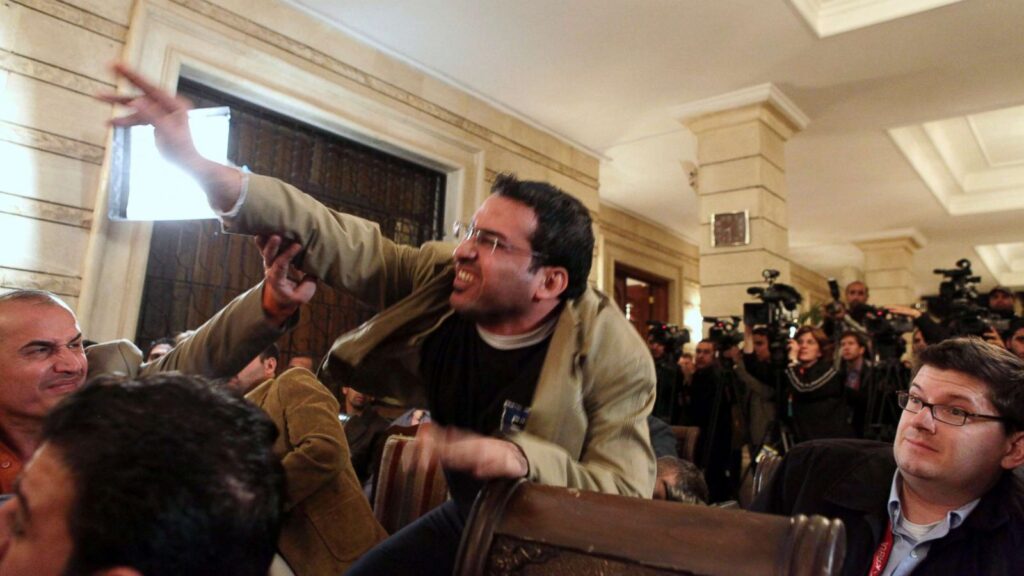
On December 14, 2008, the world witnessed an unusual form of protest during a Baghdad press conference when Iraqi journalist Muntadhar al-Zaidi decided to express his discontent with then-President George W. Bush. Al-Zaidi’s act of defiance involved hurling his shoes at the American leader, creating a symbolic and unforgettable moment that echoed around the globe.
The incident unfolded as President Bush held a joint press conference with Iraqi Prime Minister Nouri al-Maliki to discuss the signing of a U.S.-Iraq security agreement. The event was intended to mark progress in Iraq, but al-Zaidi had different plans. As President Bush spoke, the journalist seized the opportunity to voice his frustration.
In a swift and unexpected move, al-Zaidi removed his shoes and hurled them towards President Bush, narrowly missing him. The shoes, a potent symbol of disrespect in Arab culture, carried an implicit message of disdain. Simultaneously, al-Zaidi exclaimed in Arabic, “This is a farewell kiss from the Iraqi people, you dog!”
The act resonated deeply, not just for its audacity, but as a reflection of the widespread discontent and resentment towards the U.S. presence in Iraq. It highlighted the frustration many Iraqis felt about the war, its aftermath, and the role of the United States in their country.
Al-Zaidi’s actions sparked both condemnation and support. While some criticized the journalist for breaching decorum and disrespecting the visiting president, others viewed it as a bold act of resistance against perceived injustice and occupation. The incident fueled discussions about freedom of expression, dissent, and the complexities surrounding the Iraq War.
Muntadhar al-Zaidi faced immediate consequences for his shoe-throwing protest. He was promptly subdued by security forces, detained, and later sentenced to three years in prison for assaulting a foreign head of state—a sentence that was eventually reduced to one year on appeal.
The incident became an enduring symbol of resistance in the face of perceived oppression. Al-Zaidi’s act of defiance and the subsequent legal repercussions underscored the complexities of expressing dissent in a region marked by political turmoil and the consequences one might face for challenging authority.
In the years following the incident, Muntadhar al-Zaidi became a symbol of resistance for some and a controversial figure for others. His shoe-throwing protest, while a singular moment in history, remains embedded in the collective memory as a bold expression of dissent during a pivotal time in Iraq’s history.
Leave a Reply